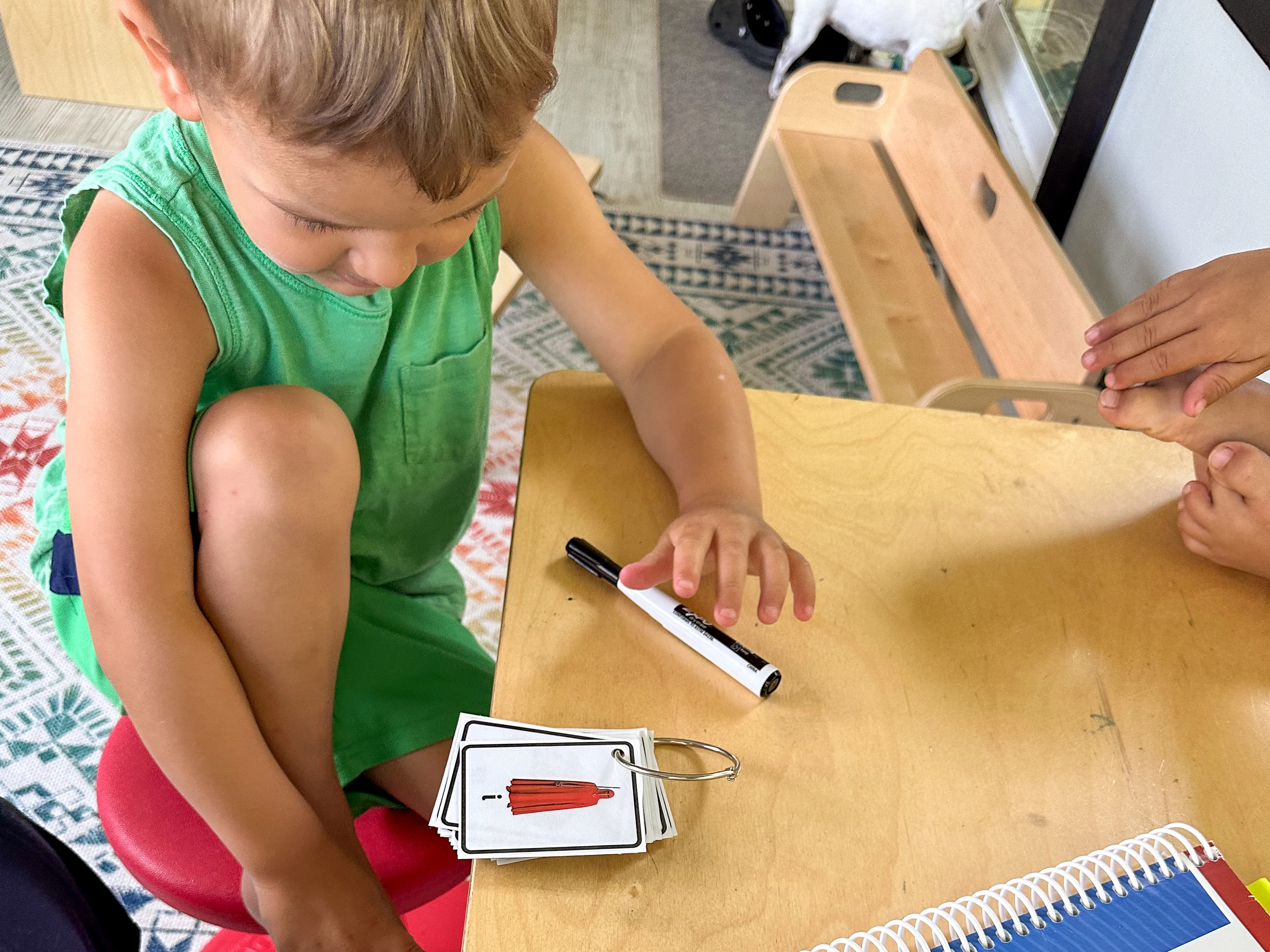There is a pervasive myth in Montessori circles, especially online, that children start to read very early. That Montessori somehow seamlessly launches children into reading in their preschool years with very little effort. And, while that might be true for a selection of Montessori preschoolers, it has not been true for my children. Reading has been a longer journey* for most of them, it's something that has required a lot of conscious effort. I want to normalize that in Montessori spaces.
(tracing a sandpaper letter with R2-D2 toy!)
Montessori is lovely for children that learn easily and quickly. It allows them to move at their individual pace and work on more challenging work as they are ready. If they are ready to start reading, they can! No one and nothing holds them back, and that is truly a gift. But, the same is true for those children that need a little more time to learn a particular skill. They have the freedom to repeat as much as necessary. To return to work on their individual skill level without pressure of keeping up with the group. It is also a gift.
Practicing Literacy Skills in our Montessori Home
At 4-years-old, Ted is not reading. And, that's completely okay. I called this article "casual" because we are not homeschoolers. So, he attends a Montessori school and we support his learning here at home. I wanted to share some of the simple ways we support literacy skills at home in a child-led, easy, casual way.
(stamping letters and spelling his name in playdough)
In the preschool years, my main goal is to support phonemic awareness (that is understanding letter sounds and start to manipulate them) and to preserve reading as an act of fun that is full of connection. I don't want to erode confidence, push them beyond their natural pace, or create power struggles. So practically, what does that look like?
- Playing with letters in a variety of ways. We're talking about their sounds, what they look like, and sometimes even their name. One thing I think I didn't do enough of with my older kids is expose them to a larger variety of print and cursive materials a younger age. So with Ted, we are treating letters a bit more like loose parts. We are playing with them a lot more, and just calling attention to what they can do! Some materials that help with this include: Letter Beads | Mirror Letters | Colorful Letters | Magnetic letters
(practicing letter sounds with DIY flashcards)
- Some direct practice. Reading is a skill that just does take repetition and practice. So at home we are doing that in fun ways. We are sorting language objects by letter sounds, we are tracing names in paint, we are playing sound games, we're sining rhyming songs, and breaking words into sounds. To support this practice I've made flashcards featuring his favorite things (Star Wars recently), we use reading rods, and lots of language objects.
- Montessori Work with a Twist. While most of his experiences with traditional Montessori materials are done at school, we do practice them here at home. But, we try to make it a little more like a game here. For example, instead of tracing a sandpaper letter with fingers, we do it with a favorite toy. Or we use the moveable alphabet to play a guessing game with foam sound objects.
(sounding out words with moveable alphabet)
Now, I want to be clear that I am not an expert here. We are just casually and happily making language work a part of our day and our routine. It's fun, and most importantly gives him a great base of experience as his reading journey moves forward.
(sorting language objects and various letters)
*I want to remind everyone that while we don't share specifics but many of my children are also neurodivergent.
How do you incorporate reading and letters into your Montessori home with your preschooler?







